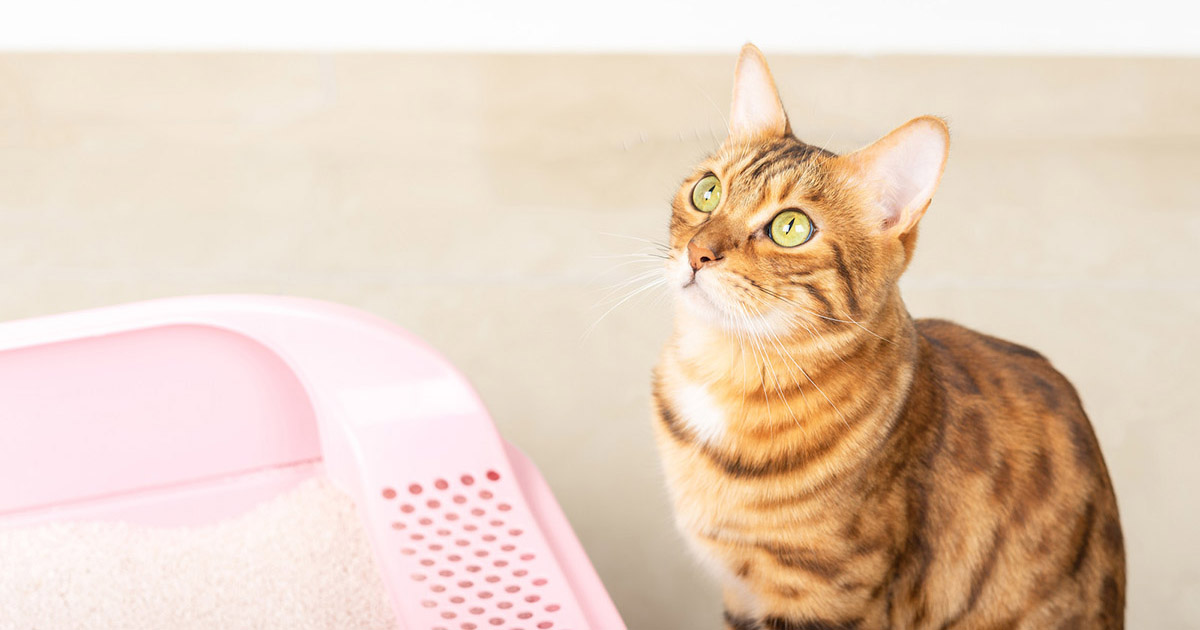Prevent Plumbing Problems: Don't Flush Cat Poop Down Your Toilet - Expert Guidance
Prevent Plumbing Problems: Don't Flush Cat Poop Down Your Toilet - Expert Guidance
Blog Article
Right here in the next paragraph you'll find a good deal of amazing insight all about Don’t flush cat feces down the toilet.

Introduction
As pet cat proprietors, it's necessary to bear in mind how we throw away our feline good friends' waste. While it might appear convenient to purge cat poop down the commode, this practice can have damaging effects for both the atmosphere and human wellness.
Environmental Impact
Flushing feline poop presents harmful pathogens and bloodsuckers right into the water system, posturing a considerable risk to water ecosystems. These contaminants can negatively affect marine life and compromise water top quality.
Wellness Risks
Along with ecological issues, purging cat waste can also position health and wellness threats to human beings. Feline feces might contain Toxoplasma gondii, a bloodsucker that can cause toxoplasmosis-- a possibly severe illness, especially for pregnant ladies and people with weakened immune systems.
Alternatives to Flushing
Thankfully, there are safer and more responsible means to deal with pet cat poop. Consider the complying with choices:
1. Scoop and Dispose in Trash
The most common method of taking care of pet cat poop is to scoop it right into a naturally degradable bag and throw it in the garbage. Make sure to use a specialized trash scoop and take care of the waste promptly.
2. Use Biodegradable Litter
Select naturally degradable feline litter made from products such as corn or wheat. These trashes are environmentally friendly and can be safely dealt with in the garbage.
3. Hide in the Yard
If you have a backyard, think about burying cat waste in an assigned location away from vegetable gardens and water sources. Make certain to dig deep enough to avoid contamination of groundwater.
4. Set Up a Pet Waste Disposal System
Buy a family pet waste disposal system especially developed for cat waste. These systems utilize enzymes to break down the waste, lowering odor and ecological impact.
Final thought
Accountable pet dog possession prolongs beyond supplying food and shelter-- it additionally involves appropriate waste management. By refraining from flushing pet cat poop down the bathroom and choosing alternate disposal approaches, we can decrease our ecological impact and shield human health.
Why You Should Never Flush Cat Poop Down the Toilet
A rose by any other name might smell as sweet, but not all poop is created equal. Toilets, and our sewage systems, are designed for human excrement, not animal waste. It might seem like it couldn’t hurt to toss cat feces into the loo, but it’s not a good idea to flush cat poop in the toilet.
First and foremost, assuming your cat uses a litter box, any waste is going to have litter on it. And even the smallest amount of litter can wreak havoc on plumbing.
Over time, small amounts build up, filling up your septic system. Most litter sold today is clumping; it is made from a type of clay that hardens when it gets wet. Ever tried to scrape old clumps from the bottom of a litter box? You know just how cement-hard it can get!
Now imagine just a small clump of that stuck in your pipes. A simple de-clogger like Drano isn’t going to cut it. And that means it’s going to cost you big time to fix it.
Parasitic Contamination
Believe it or not, your healthy kitty may be harboring a nasty parasite. Only cats excrete Toxoplasma in their feces. Yet it rarely causes serious health issues in the cats that are infected. Most people will be fine too if infected. Only pregnant women and people with compromised immune systems are at risk. (If you’ve ever heard how women who are expecting are excused from litter cleaning duty, Toxoplasma is why.)
But other animals may have a problem if infected with the parasite. And human water treatment systems aren’t designed to handle it. As a result, the systems don’t remove the parasite before discharging wastewater into local waterways. Fish, shellfish, and other marine life — otters in particular — are susceptible to toxoplasma. If exposed, most will end up with brain damage and many will die.
Depending on the species of fish, they may end up on someone’s fish hook and, ultimately on someone’s dinner plate. If that someone has a chronic illness, they’re at risk.
Skip the Toilet Training
We know there are folks out there who like to toilet train their cats. And we give them props, it takes a lot of work. But thanks to the toxoplasma, it’s not a good idea.

I am just very serious about How to Dispose of Cat Poop and Litter Without Plastic Bags and I'm hoping you liked our page. Enjoyed reading our write-up? Please share it. Help somebody else check it out. Thank you so much for your time spent reading it.
Schedule Now! Report this page